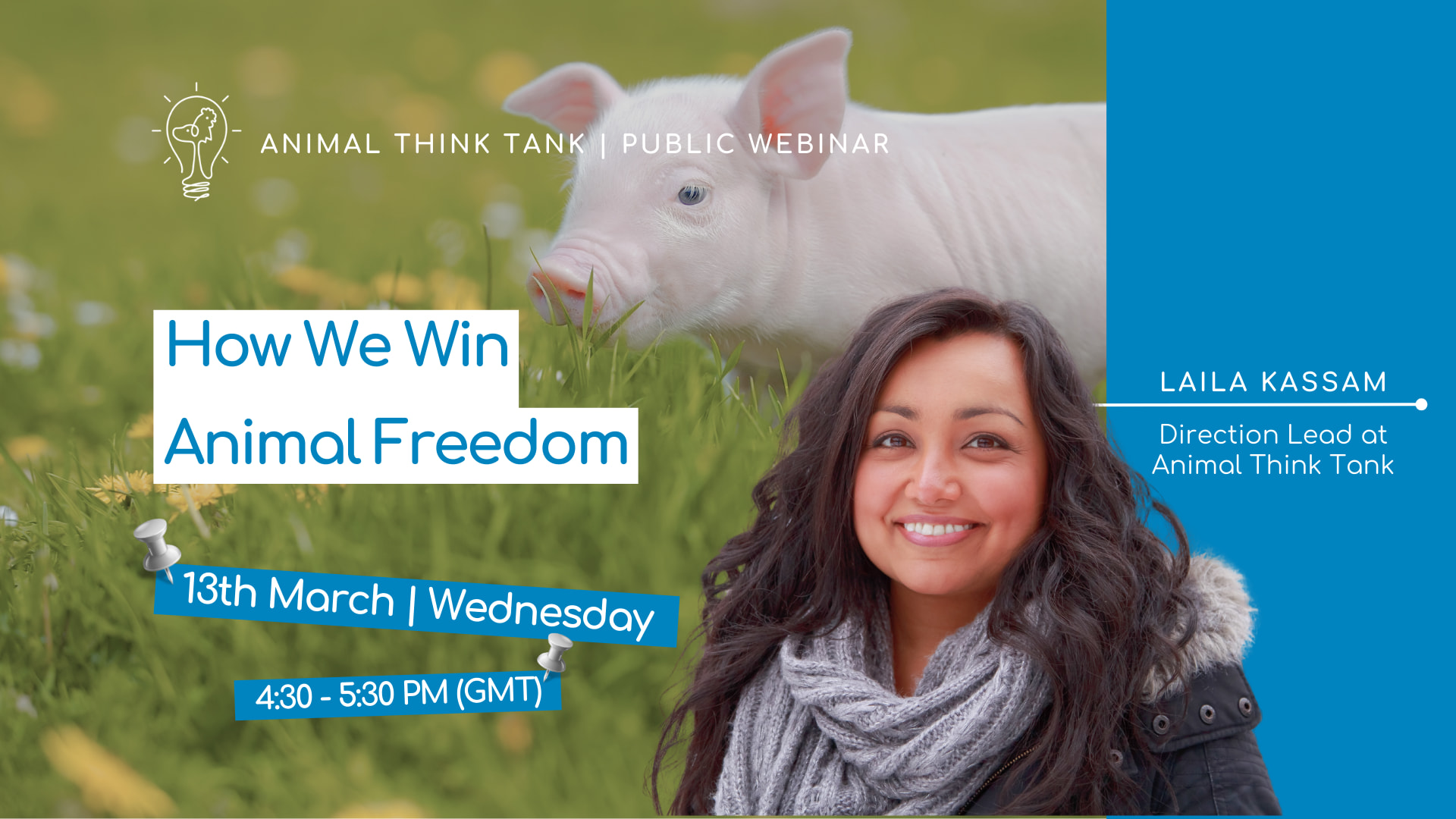Animal Think Tank's first story-based strategy webinar is happening in a month! 🐖
📌 How We Win Animal Freedom
🗓️ March 13th, Wednesday
⏰ 4:30 - 5:30 PM (GMT)
This webinar is for people who want to think big and get inspired. Drawn from cutting-edge research on social movements and civil resistance, Laila Kassam will share key concepts, principles and strategies for building a powerful movement that can achieve lasting change for fellow animals. 🐄 ❤️
Whether you're a storyteller, strategist, campaigner, organiser or street activist, you'll leave feeling empowered and inspired about what our movement can achieve together. 🤝
Space is limited, and our webinars fill up quickly. Therefore, I invite you to sign up and secure your space now: https://us02web.zoom.us/meeting/register/tZYld-mpqj0vGNQ8wvcb9YNbvUvxU-nqhYBA#/registration



